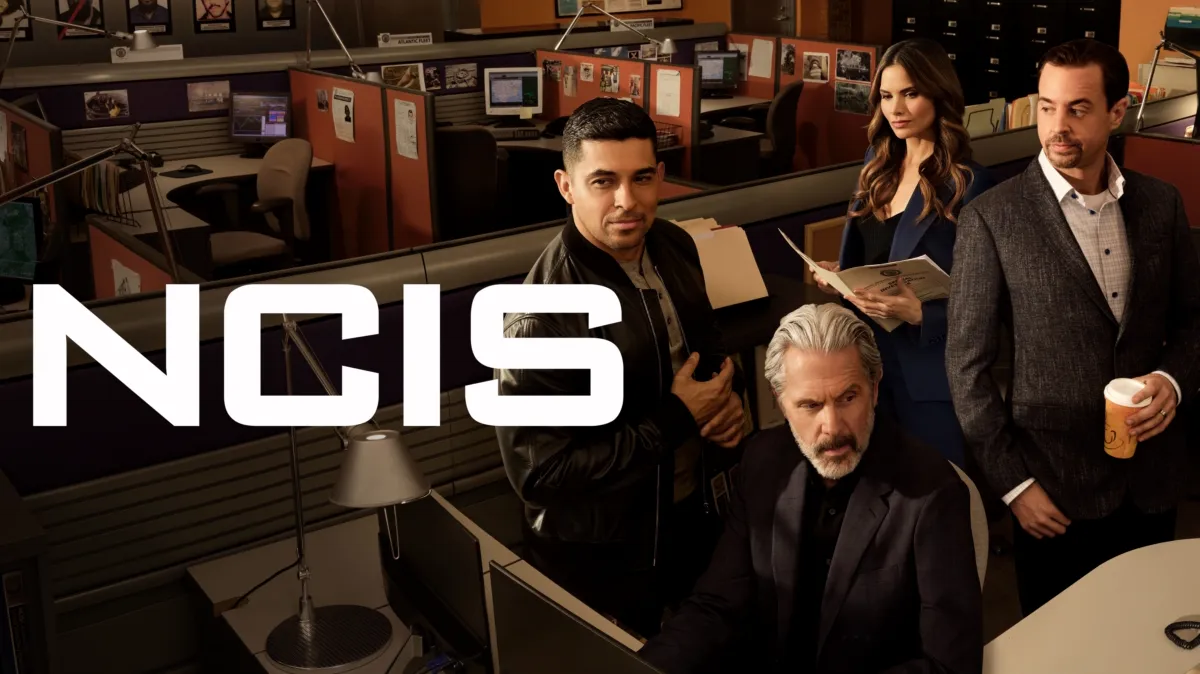
I didn’t set out to find life lessons in NCIS reruns. Honestly, I just wanted something to play while folding laundry or scrolling through my phone. But then something happened.
I stopped folding. I stopped scrolling.
I started watching.
Really watching.
And somewhere between Gibbs’ Rules, Tony’s one-liners, and Ziva’s fierce loyalty, I realized that NCIS—a show I thought was just another procedural—was quietly dropping wisdom bombs left and right.
Here’s what I learned.
Lesson 1 – Loyalty Is Loudest in the Quiet Moments
The NCIS team rarely makes grand gestures. But you know who’s showing up at 2 a.m. when things go sideways?
Gibbs. McGee. Ziva. Ducky. Every. Single. Time.
Loyalty on this show isn’t about saying “I’ve got your back.” It’s about actually showing up, even when it’s inconvenient, painful, or risky.
Lesson 2 – People Are Messy, But That Doesn’t Make Them Bad
From Tony’s immaturity to Ziva’s trauma to Gibbs’ entire Greek tragedy of a backstory, NCIS reminds you that everyone’s carrying something.
And guess what? They’re still worth rooting for.
The show doesn’t clean up its characters to make them palatable. It lets them be raw, broken, complicated—and still lovable.
Lesson 3 – Sometimes, Silence Says More Than Words
You can learn more from a Gibbs stare than a three-page monologue in any other show.
There’s something powerful in the way NCIS lets moments breathe. Whether it’s:
-
A father talking to his daughter’s killer
-
A team member mourning a lost comrade
-
Or just Gibbs quietly sanding wood in his basement
NCIS taught me that stillness can speak volumes.
Lesson 4 – Found Family Is Just As Real As Blood
One of the most beautiful things about NCIS?
They’re not related—but they’re a family.
They bicker like siblings, support each other like parents, and risk their lives like it’s second nature. Watching it reminded me that family isn’t always who you’re born to—it’s who shows up.
Lesson 5 – Justice Isn’t Always Black and White
You’d think a crime show would have a clear moral compass.
But NCIS doesn’t shy away from the gray.
Some of the best episodes are the ones where:
-
The “bad guy” isn’t really bad
-
The “right thing” hurts like hell
-
And the team is left questioning everything
And that’s real life, isn’t it?
Lesson 6 – Everyone Needs a Set of Personal Rules
Gibbs’ rules may seem quirky at first, but over time, they start to feel like a blueprint for life.
Some of my favorites?
-
Rule #3: Don’t believe what you’re told. Double check.
-
Rule #8: Never take anything for granted.
-
Rule #36: If you feel like you’re being played, you probably are.
Whether you follow them or not, NCIS teaches you the value of having your own internal compass.

Lesson 7 – Forgiveness Is a Superpower
No one holds grudges like Gibbs. But no one forgives like him, either.
From Ziva’s secrets to Tony’s screw-ups to McGee’s rookie mistakes, Gibbs shows us that real leadership means knowing when to call someone out—and when to let it go.
It reminded me that forgiveness isn’t weakness. It’s strength.
Lesson 8 – Vulnerability Doesn’t Make You Weak
The strongest characters on NCIS are the ones who aren’t afraid to be vulnerable.
-
Ziva opening up about her father
-
Tony confronting his feelings about family
-
McGee owning up to his insecurities
-
Gibbs… well, Gibbs doesn’t talk much, but when he does? You feel it.
The show is full of hard people doing hard jobs. But it’s in the moments they let their guard down that we fall in love with them.
Lesson 9 – Healing Isn’t Linear
No one on NCIS is perfectly okay.
And they don’t pretend to be.
Gibbs never “gets over” Shannon and Kelly.
Ziva doesn’t magically stop carrying her past.
Even Palmer, the lighthearted one, goes through immense grief.
But they keep going.
And that’s the point.
Healing isn’t a straight line. NCIS reminded me that sometimes, progress looks like just showing up for work the next day.
Lesson 10 – Humor Can Be a Lifeline
Despite all the murder, loss, and danger, NCIS still finds room for laughs.
That’s not accidental—it’s survival.
Humor is how Tony copes. It’s how Abby bonds. It’s how the team breathes between tragedies.
Watching the show, I realized: Laughter isn’t a distraction from pain—it’s a way through it.
Final Thoughts – More Than Just a Procedural
I thought I was just watching reruns.
I ended up getting a crash course in life, loss, love, and loyalty.
For all its crime-solving and gunfire, NCIS is really about people—imperfect, complex, lovable people trying to do the right thing in a messy world.
And after spending hours in their world, I feel like I’ve learned more than I ever expected—from a show that’s still teaching, even in reruns.
FAQs
1. Is NCIS really worth rewatching from the beginning?
Absolutely. The early seasons, especially with the original cast, are filled with character development and emotional depth that holds up incredibly well.
2. Which season of NCIS is the best for emotional storytelling?
Seasons 2 through 5 are particularly strong in balancing procedural plots with deep character arcs, especially around Gibbs, Ziva, and Tony.
3. What makes NCIS stand out from other crime shows?
It blends action with heart. The team dynamics, long-running character arcs, and subtle emotional storytelling set it apart.
4. Is NCIS just for crime drama fans?
Not at all. While crime-solving is the structure, the real draw is the team’s relationships, growth, and personal stories.
5. Do Gibbs’ Rules really hold life lessons?
Yes—surprisingly so. They may sound like quirky TV lines, but many of them reflect practical wisdom and strong principles for life and leadership.
Sometimes, all you need is a good crime show to teach you how to live a little better. Thanks, NCIS.